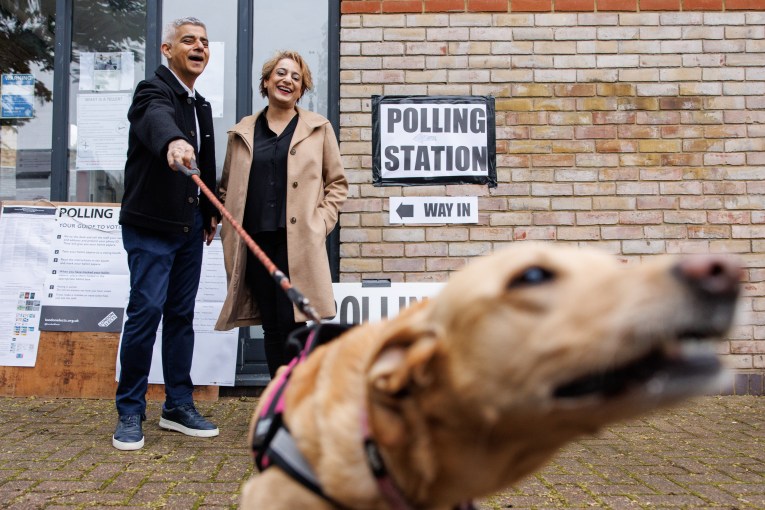Protests in Edinburgh after court denies Scottish vote
Protesters have gathered on a freezing Edinburgh night to express their anger after a court ruled Scotland cannot hold a new referendum on independence without the consent of the British government.
The decision, handed down by Britain’s Supreme Court on Wednesday (local time), is a setback for the Scottish government’s campaign to break away from the UK.
After it was released, hundreds of protesters gathered outside Holyrood, the seat of the Scottish parliament, wearing Scottish flags as capes and brandishing anti-Conservative placards.
“Our colonial status has been confirmed – and the law is an ass!” read one.
Groups of bagpipers huddled together against the cold, as The Proclaimers blasted out loud.
The protesters were also confronted by a rival group, backing the court’s decision on the 300-year-old union of Scotland and England.
Supreme Court President Robert Reed said the five justices were unanimous in their verdict, delivered six weeks after lawyers for the pro-independence Scottish administration and the Conservative UK government argued their cases at hearings in London.
Scottish First Minister Nicola Sturgeon said she was disappointed but would respect the judgment.
“A law that doesn’t allow Scotland to choose our own future without Westminster consent exposes as myth any notion of the UK as a voluntary partnership & makes case for (independence),” she wrote on Twitter.
Tweet from @NicolaSturgeon
Tweet from @NicolaSturgeon
UK Minister for Scotland Alister Jack said the government respected the ruling and “we will continue to work constructively with the Scottish government in tackling all the challenges we share and face”.
The semi-autonomous Scottish government wants to hold a referendum next October with the question “Should Scotland be an independent country?”
The UK government in London refuses to approve a vote, saying the question was settled in a 2014 referendum that saw Scottish voters reject independence by a margin of 55 per cent to 45 per cent.
Edinburgh wants to revisit 2014 decision
The pro-independence government in Edinburgh wants to revisit the decision, arguing Britain’s departure from the European Union, which most Scottish voters opposed, radically changed the political and economic landscape.
Ms Sturgeon argues she has a democratic mandate to hold a new secession vote because there is an independence-supporting majority in the Scottish parliament.
During Supreme Court hearings in October, Dorothy Bain, the Scottish government’s top law officer, said the majority of Scottish MPs had been elected on commitments to hold a fresh independence referendum.
She also said a referendum would be advisory, rather than legally binding.
Power to hold referendum rests with UK parliament
British government lawyer James Eadie argued that power to hold a referendum rested with the UK parliament because “it’s of critical importance to the United Kingdom as a whole”.
Polls suggest Scots are about evenly split on independence, and a majority of voters do not want a new referendum soon.
Scotland and England have been politically united since 1707. Scotland has had its own parliament and government since 1999 and makes its own policies on public health, education and other matters. The UK-wide government in London controls matters such as defence and fiscal policy.
Ms Sturgeon had said that if her government lost the court case, she would make the next UK election a de facto plebiscite on ending Scotland’s union with England.
-with AAP








